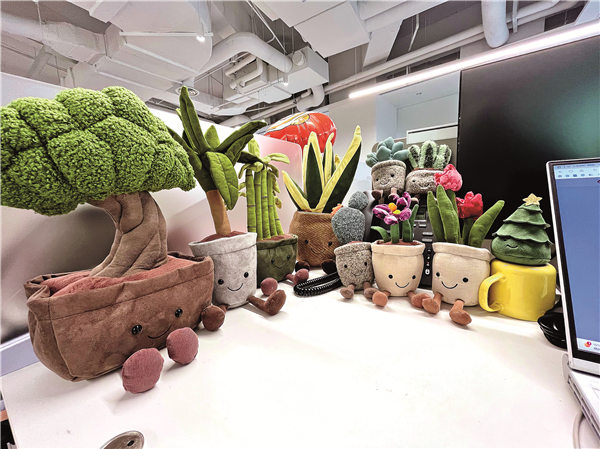Toying with an idea of companionship


Young adults turn to fake furry friends to bolster their spirits
Internet operation officer Gao Qingmeng, 24, from an internet enterprise in Shanghai, was in a reflective mood while working overtime from home one weekend. To tackle her ennui, she scrolled through social media platforms, and suddenly came across a post from Jellycat, a UK-headquartered soft-toy company, and was instantly smitten by it.
She immediately felt an urge to buy one. Without hesitation, she left home and took an hourlong subway ride to purchase one — a Bartholomew Bear, a popular product from the company.
This was just the beginning. One toy led to another, and one by one, her legion expanded into a large collection.
Her workstation in office is now home to a zoo of plush toy creatures, and many also in shapes of green plants and flower pots. "They took up all my desk space! Then, my colleagues offered more space," Gao says, adding that now her colleagues' desks have been "invaded "by her surplus stuffed creatures.
"Whenever I work overtime or face challenges at work, my toys are a great comfort to me," Gao says. "They make me feel at ease and help me avoid anxiety and irritability, and offer me much emotional comfort whenever in need."
On various social media platforms, many young people are showing off their plush toy collections. There has been an increasing demand for plush toys in the Chinese market, not merely from their targeted customers — children — but also including young adults.




































